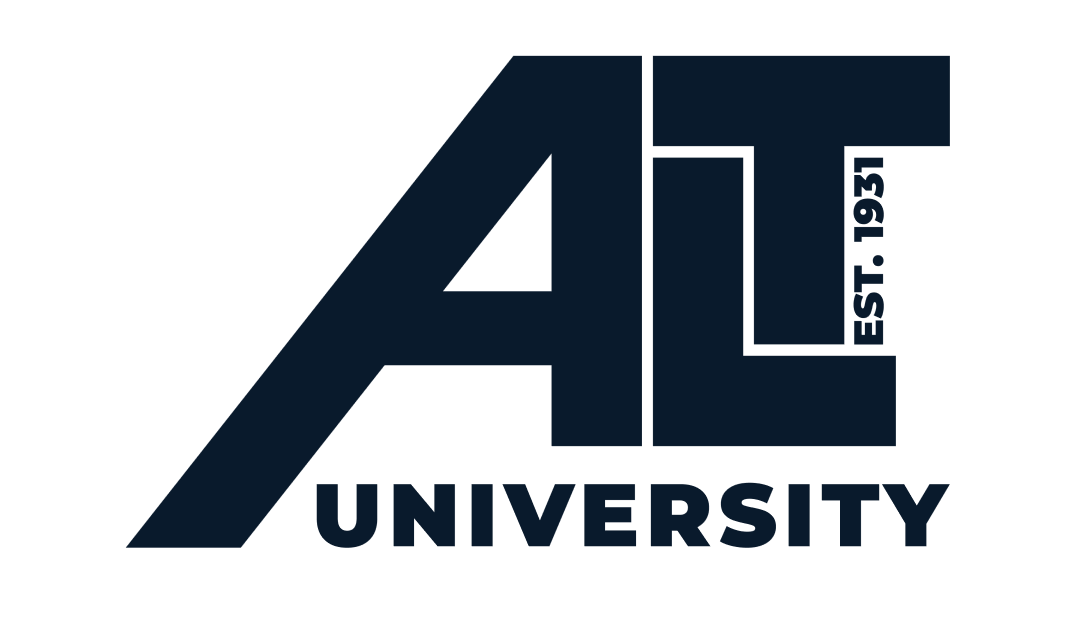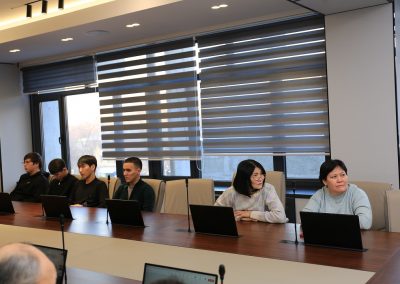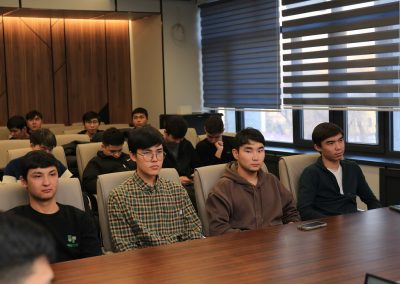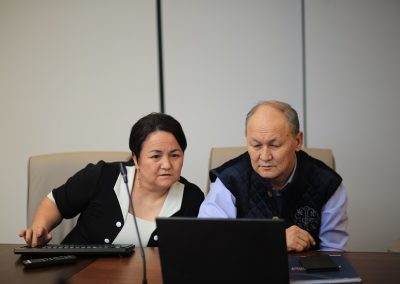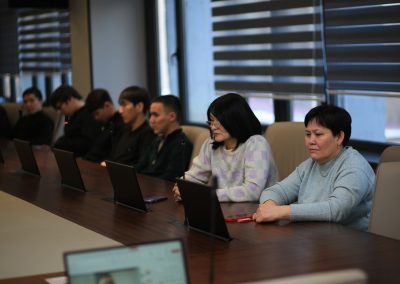On December 18, 15:30 p.m., within the framework of the “Innovation Week” of the Department of Information and Communication Technology, a guest lecture was also held in online format by Alexander Vasiliev,
Director of the Project Management Directorate of the production unit of OCRV LLC, on the topic: “Automation of production activities of Russian Railways”
He began the lecture with a brief introduction to the topic, explaining the importance of automation for Russian railways. This helped the listeners to understand the relevance of the issue. Statistics and examples from the activities of Russian Railways were given, and showed how the development of technology has affected the industry. Real-world examples of the use of automation on railways were used (for example, automation of train traffic control, real-time monitoring of infrastructure, forecasting and route optimization systems). He shared examples of successful projects that have been implemented in Russia and abroad to show how these technologies can be adapted. Technological innovations were applied in the lecture, he spoke about new technologies such as artificial intelligence, the Internet of Things (IoT), big data and their application in the automation of the transport industry. He explained how these technologies can improve the accuracy of forecasts, increase safety and speed up processes. He also showed practical applications and demonstrations of automation, for example, how monitoring or traffic control systems work. For example, there was a demonstration of an automatic track condition monitoring system or the use of sensors to diagnose the condition of rolling stock. Engaging the audience in a dialogue, he asked the audience questions, and suggested thinking about possible problems and challenges that railways may face when introducing new technologies. Then he focused on the specific questions that the listeners asked, on the guest lecture, how they see the development of automation in Russia in the future. In conclusion, he devoted forecasts for the future, how automation on railways will develop, what new challenges may appear and what prospects open up for young specialists in this field. He also spoke about new trends in the global practice of automation of transport systems. At the end of the lecture, he shared additional materials with the audience: articles, links to scientific research, infographics, documents on the introduction of technology on railways. Examples from world experience were considered — how automation has developed in other countries (for example, Germany, Japan, the USA) and what technologies can be introduced in Russia in the future. He told about the technologies used to automate processes in Russian Railways, ASUDP, IoT, Big Data. This approach made the lecture more intense and interesting for the audience.



